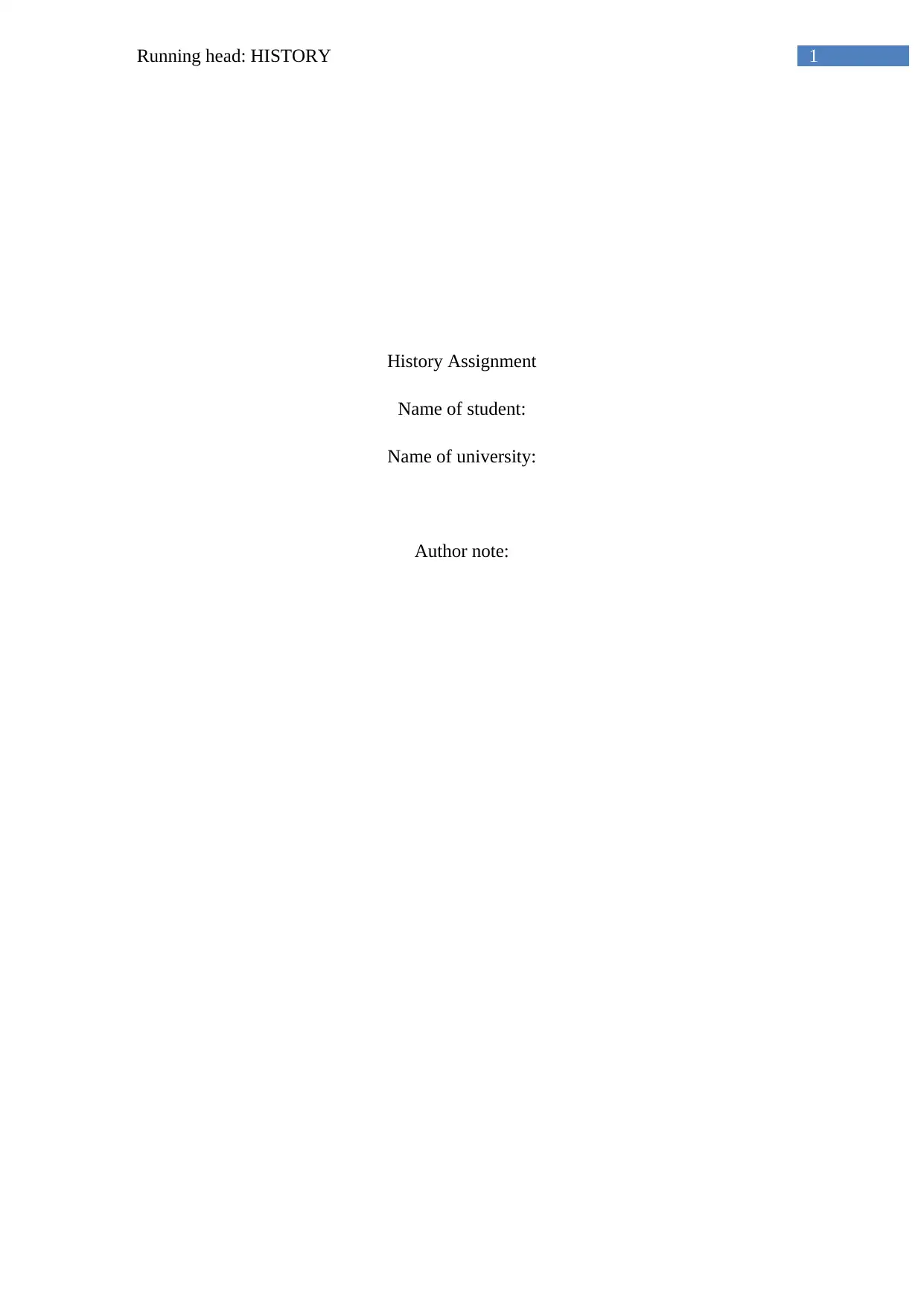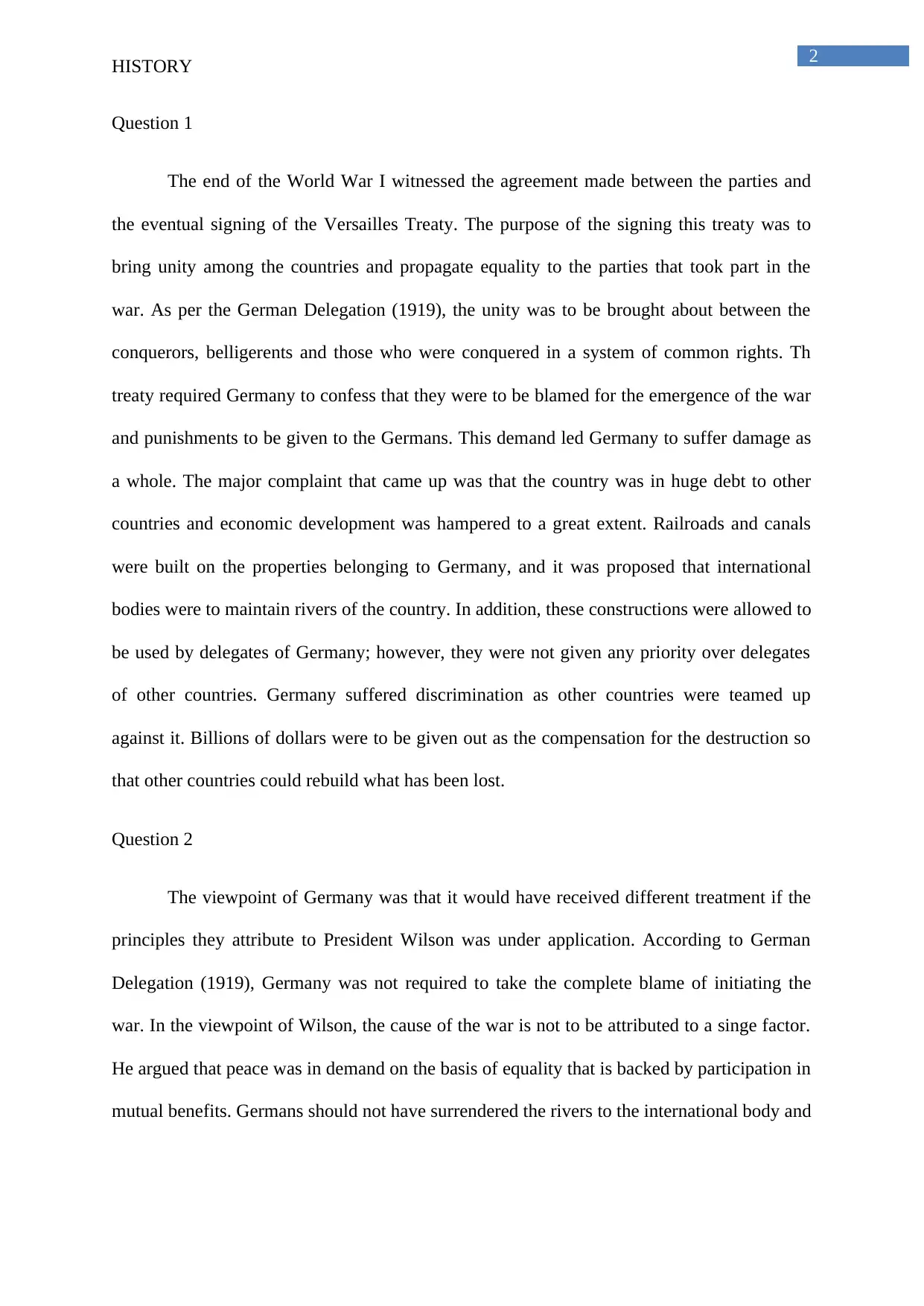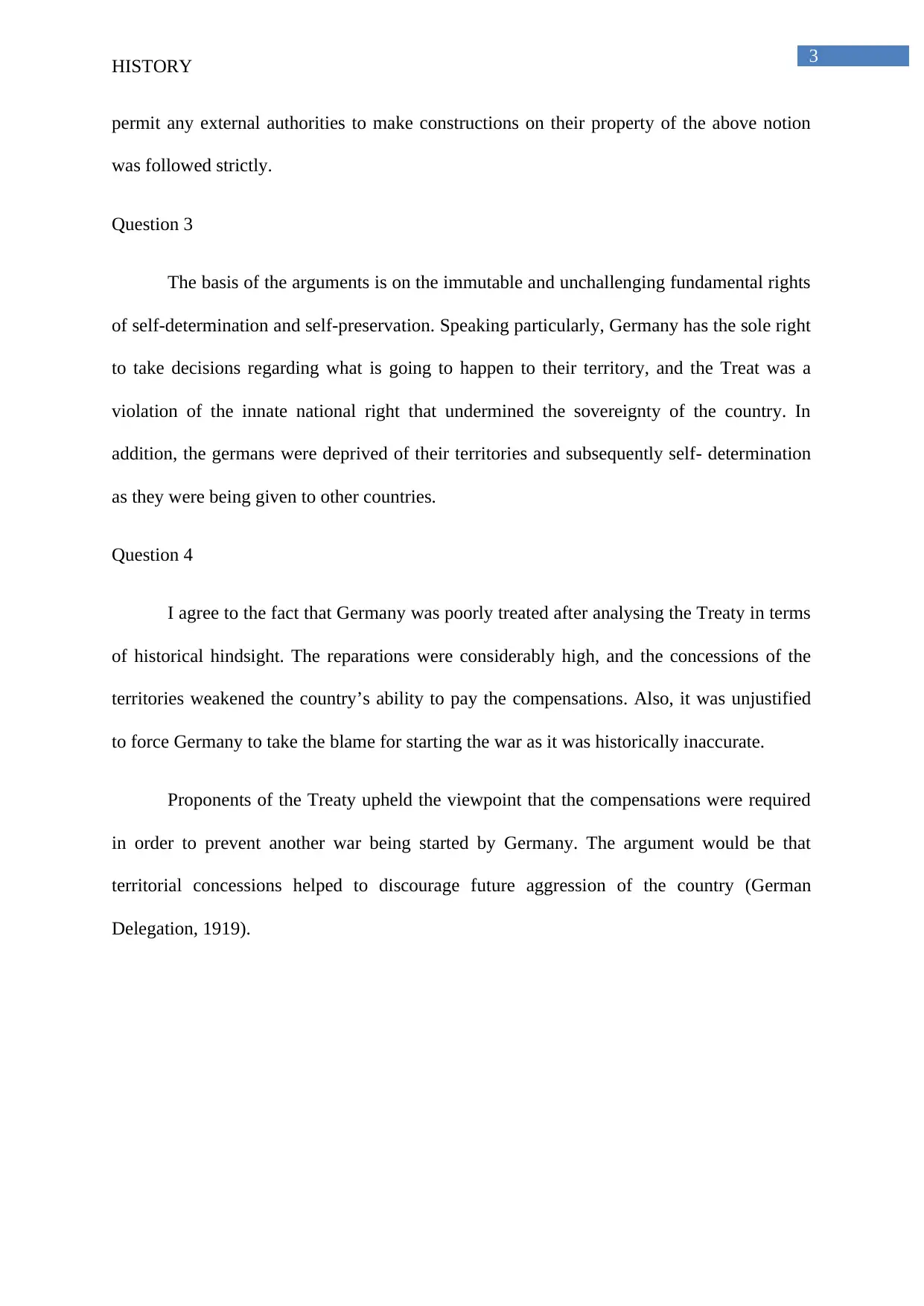History Assignment: The Treaty of Versailles and Germany's Perspective
VerifiedAdded on 2019/11/08
|4
|598
|163
Report
AI Summary
This report analyzes the Treaty of Versailles, focusing on its impact on Germany after World War I. The assignment begins by outlining the treaty's terms, including the reparations, territorial concessions, and the assignment of war guilt to Germany. It then explores the German perspective on the treaty, highlighting their objections to the terms and the belief that they were unfairly treated. The report discusses the arguments regarding self-determination and the violation of German sovereignty. Finally, it concludes with an assessment of the treaty's fairness, arguing that the reparations were excessive and the assignment of blame was unjustified, while also acknowledging the arguments made by the proponents of the treaty. The report makes use of a reference: Comments of the German Delegation to the Paris Peace Conference on the Conditions of Peace (1919) to support its arguments and analysis of the treaty.
1 out of 4









![[object Object]](/_next/static/media/star-bottom.7253800d.svg)